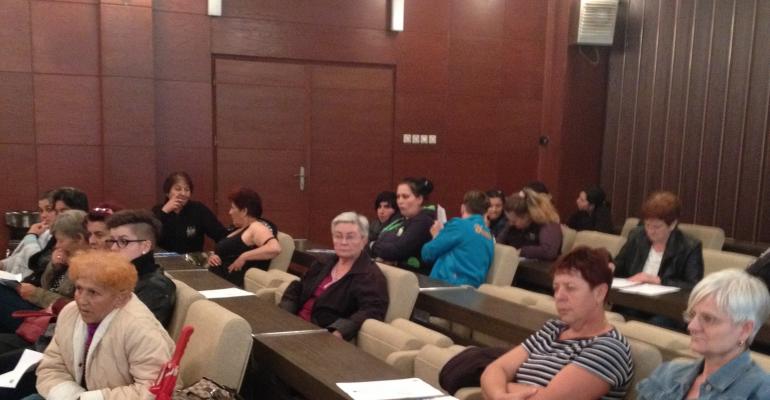Community meeting ”Protection of Women's Health“ held in Beli Manastir on 26 May 2015
Published: 2015/02/06 14:13

IMG_0325.JPG
On 26 May 2015 at 6:00 p.m. Information Legal Center (ILC) organized community meeting ”Protection of Women's Health“ in the city hall in Beli Manastir. The guest of the community meeting was dr. Jasna Hauzer, Dr. specialist gynaecologist, and moderator was Sanja Bešlić-Kozmus, ILC's project manager. 26 citizens attended the community meeting.
Dr. Hauzer held presentation about venereal diseases and the tumours of women's venereal organs. She highlighted importance of preventive medicine in which more money should be invested in order to prevent prevalence of disease. Dr. Hauzer informed all participants that even 70% of women are infected by Human papillomavirus (HPV), but not all of them will get sick. The third of women, who have good immune system, completely carve out with the virus; virus disappears or becomes latent.
She invited all women to go regularly on gynaecologist exams (Pap test, colposcopy and cervical biopsy). Additionally, she emphasized that 7 years is needed for development of the cervical cancer from the grade CIN 1 so not any woman should allow herself not to go on gynaecologist check up for so long. Talking about urological infections as the most common type of infection, she advised women to drink 8 times per 2 decilitres of water and to urinate more in order to get rid of bacteria and prevent infections. According to her findings (and dr. Hauzer takes care of 6600 patients in Beli Manastir and Darda) juvenile pregnancies are inconsiderable, barely two or three pregnant women per year, whereas the number of older pregnant women has increased so she highlighted a necessity of conducting amniocentesis in these cases so as to timely detect Down's syndrome, Edwards syndrome or birth defect split spine (spina bifida).
At the end of the community meeting which lasted an hour, it was concluded how important it is to raise awareness among youth on sexually responsible behaviour and respond to the vocations for gynaecologist exams sent within the National programme of early detection of cervical cancer financed by the European Union (EU). After the presentation dr. Hauzer answered the questions and provided valuable advices to all participants. Finally, she stated that in fact the biggest problem is the mentality, tradition and that has to be changed, however hard it gets.
